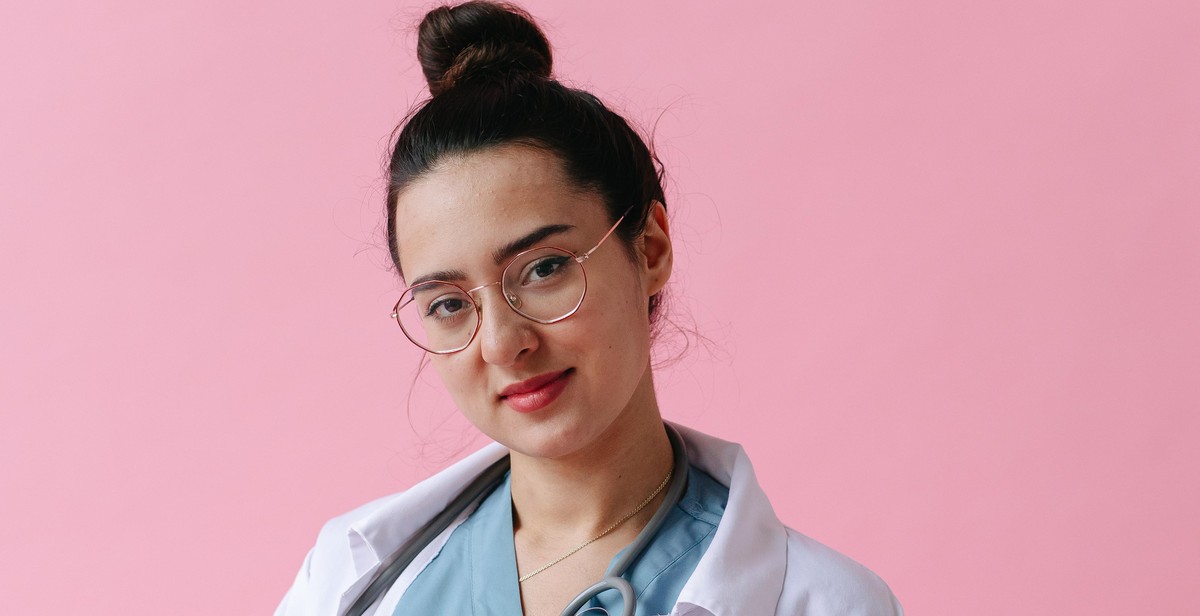Introduction: How to Treat and Prevent Hair Loss and Promote Regrowth
Hair loss is a common problem that affects millions of people worldwide. It can be caused by a variety of factors, including genetics, age, hormonal changes, stress, and certain medical conditions. Hair loss can be a concern for both men and women, as it can have a significant impact on self-esteem and confidence.
What Causes Hair Loss?
There are many different factors that can contribute to hair loss. One of the most common causes is genetics. If your parents or grandparents experienced hair loss, you may be more likely to experience it as well. Age is another factor that can contribute to hair loss, as the natural aging process can cause hair to become thinner and more brittle.
Hormonal changes can also play a role in hair loss. For example, women may experience hair loss during pregnancy or menopause due to changes in hormone levels. Stress and certain medical conditions, such as thyroid disorders and autoimmune diseases, can also contribute to hair loss.
Why is Hair Loss a Concern?
While hair loss is not typically a serious medical condition, it can have a significant impact on a person’s self-esteem and confidence. Many people feel self-conscious and embarrassed about their hair loss, which can lead to social isolation and depression. Additionally, hair loss can be a sign of an underlying medical condition that requires treatment.
Fortunately, there are many treatments and preventative measures that can help to promote hair growth and prevent further hair loss. By understanding the causes of hair loss and taking steps to address them, individuals can regain their confidence and enjoy a full head of healthy, beautiful hair.

Medical Treatments for Hair Loss
If you are experiencing hair loss, there are several medical treatments that can help. These treatments can help slow down or even reverse hair loss, as well as promote regrowth. Here are some of the most common medical treatments for hair loss:
Prescription Medications
There are several prescription medications that are used to treat hair loss. The most common are finasteride and minoxidil.
- Finasteride: This medication is taken orally and works by blocking the production of dihydrotestosterone (DHT), a hormone that can cause hair loss. It is most effective for men with male pattern baldness.
- Minoxidil: This medication is applied topically to the scalp and works by increasing blood flow to the hair follicles. It can be used by both men and women.
Hair Transplantation
Hair transplantation is a surgical procedure that involves taking hair follicles from one part of the scalp (usually the back or sides) and transplanting them to the balding areas. This procedure can be expensive and may require multiple sessions, but it is a highly effective treatment for hair loss.
Scalp Reduction
Scalp reduction is a surgical procedure that involves removing bald scalp and stretching the remaining scalp to cover the area. This procedure can be effective for people with small areas of baldness, but it may not work for larger areas.
Scalp Expansion
Scalp expansion is a surgical procedure that involves inserting a balloon-like device under the scalp and gradually inflating it over several weeks. This stretches the scalp, allowing for more hair to be transplanted in the future. This procedure is often used in conjunction with hair transplantation.
| Treatment | Effectiveness | Cost | Side Effects |
|---|---|---|---|
| Prescription Medications | Varies | Low to moderate | May cause sexual side effects (finasteride) |
| Hair Transplantation | High | High | Possible scarring and bleeding |
| Scalp Reduction | Varies | High | Possible scarring and nerve damage |
| Scalp Expansion | Varies | High | Possible scarring and discomfort during inflation |

Natural Remedies for Hair Loss
Hair loss is a common problem that affects both men and women. While there are several over-the-counter products available to treat hair loss, they often come with side effects. Fortunately, there are several natural remedies that can help prevent hair loss and promote regrowth. Here are some of the most effective natural remedies for hair loss:
Dietary Changes
One of the most effective ways to prevent hair loss is to make dietary changes. A diet rich in vitamins, minerals, and protein can help promote hair growth and prevent hair loss. Some of the best foods for healthy hair include:
- Leafy green vegetables such as spinach and kale
- Fruits such as berries, oranges, and bananas
- Lean proteins such as chicken, fish, and eggs
- Nuts and seeds such as almonds, walnuts, and chia seeds
- Whole grains such as brown rice and quinoa
It’s also important to stay hydrated by drinking plenty of water.
Scalp Massage
Massaging the scalp can help improve blood circulation to the hair follicles, which can promote hair growth. To do a scalp massage, use your fingertips to gently massage your scalp in circular motions for a few minutes each day. You can also use a scalp massager tool for more effective results.
Essential Oils
Essential oils such as lavender, rosemary, and peppermint can help stimulate hair growth and prevent hair loss. To use essential oils for hair growth, mix a few drops of your preferred oil with a carrier oil such as coconut oil or jojoba oil, and massage the mixture into your scalp. Leave the oil on for at least 30 minutes before washing it off with shampoo.
Herbal Supplements
Several herbal supplements have been found to promote hair growth and prevent hair loss. Some of the most effective herbal supplements for hair loss include:
| Herbal Supplement | Benefits |
|---|---|
| Saw palmetto | Blocks DHT, a hormone that contributes to hair loss |
| Ginkgo biloba | Improves blood circulation to the scalp |
| Stinging nettle | Blocks DHT and promotes hair growth |
It’s important to consult with a healthcare provider before taking any herbal supplements to ensure they are safe and effective for you.

Preventing Hair Loss
While some hair loss is natural and unavoidable, there are several lifestyle changes and habits you can adopt to prevent premature hair loss and promote regrowth. Here are some tips:
Lifestyle Changes
One of the most effective ways to prevent hair loss is to maintain a healthy lifestyle. This includes eating a balanced diet rich in vitamins and minerals that promote hair growth, such as iron, zinc, and biotin. Regular exercise and getting enough sleep can also help reduce stress levels and improve blood circulation to the scalp, which can promote hair growth.
Protecting Your Hair
Protecting your hair from damage is also important in preventing hair loss. Avoid over-styling your hair with hot tools or tight hairstyles that can pull on the hair and cause breakage. Instead, opt for loose hairstyles and let your hair air-dry whenever possible. Additionally, wearing a hat or scarf when exposed to the sun or harsh weather can help protect your hair from damage.
Avoiding Harsh Chemicals
Chemicals found in hair products, such as sulfates and parabens, can damage the hair and contribute to hair loss. Opt for natural and organic hair products that are free of harsh chemicals. Additionally, avoid coloring or bleaching your hair, as these processes can weaken the hair and cause breakage.
Managing Stress
Stress is a major contributor to hair loss, as it can disrupt hormone levels and affect the hair growth cycle. To manage stress, try incorporating relaxation techniques such as meditation, yoga, or deep breathing exercises into your daily routine. Additionally, getting regular massages or acupuncture treatments can help reduce stress levels and promote hair growth.
By adopting these healthy habits and making lifestyle changes, you can prevent premature hair loss and promote regrowth. However, if you are experiencing significant hair loss, it is important to consult with a healthcare professional to determine the underlying cause and appropriate treatment options.

Promoting Hair Regrowth
While there are many products and treatments that claim to promote hair regrowth, not all of them are effective. Here are some of the most popular and proven methods:
Minoxidil
Minoxidil, also known as Rogaine, is a topical solution that is applied to the scalp. It is approved by the FDA for both men and women and has been shown to be effective in promoting hair regrowth. Minoxidil works by increasing blood flow to the hair follicles, which stimulates hair growth.
Finasteride
Finasteride, also known as Propecia, is a medication that is taken orally. It is only approved for use by men and works by blocking the production of DHT, a hormone that is responsible for hair loss. Finasteride has been shown to be effective in promoting hair regrowth in men.
Platelet-Rich Plasma (PRP) Therapy
PRP therapy involves taking a small sample of the patient’s blood and processing it to concentrate the platelets. The platelets are then injected into the scalp to promote hair regrowth. PRP therapy has shown promising results in both men and women, but more research is needed to determine its long-term effectiveness.
Low-Level Laser Therapy (LLLT)
LLLT involves using a device that emits low-level laser light to stimulate hair growth. The treatment is painless and has been shown to be effective in promoting hair regrowth in both men and women.
| Treatment | Approval | Effectiveness |
|---|---|---|
| Minoxidil | FDA-approved for both men and women | Proven effective in promoting hair regrowth |
| Finasteride | FDA-approved for men only | Proven effective in promoting hair regrowth in men |
| PRP Therapy | Not FDA-approved | Promising results, but more research needed |
| LLLT | Not FDA-approved | Proven effective in promoting hair regrowth |
It is important to note that not all hair loss can be treated with these methods, and results may vary. It is best to consult with a healthcare professional to determine the best course of action for your specific situation.
